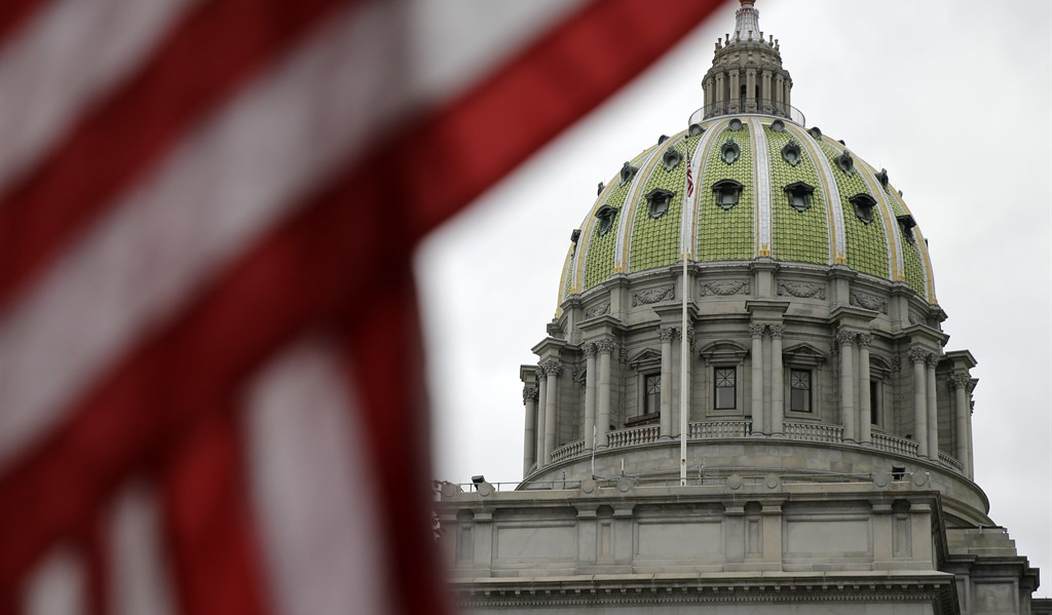The Tax Foundation is out with a series of proposed remedies to address Pennsylvania’s local taxation miasma. But how taxpayers would view such changes -- some significant -- and how those changes would be administered – some problematic -- remain a huge question mark, say scholars at the Allegheny Institute for Public Policy.
“To be sure, a tax system that emphasizes efficiency and transparency would be a welcome change indeed,” says Eric Montarti, research director at the Pittsburgh think tank, and Jake Haulk, president emeritus and senior advisor.
“At this point, what that looks like and when it will be put in place remains to be seen,” the pair add (in Policy Brief Vol. 18, No. 37).
The local taxation regimen in the commonwealth is as expansive as it can be confusing. Counties, municipalities and school districts can levy myriad state-sanctioned taxes.
Among them, there are taxes on property, earned income and deed transfers. There are per-capita taxes and those on occupations. Additionally, businesses may also have to pay gross-receipts taxes (business-privilege and mercantile). Then there are amusement/admission taxes and local services imposts on employees.
And rules and regulations dealing with the levying and collecting of these taxes only add another layer to the bewilderment of those liable for them.
To that end, the Tax Foundation – in its recent report, “Pennsylvania: A 21st-Century Tax Code for Commonwealth” – suggests a general streamlining of tax codes and statutes. It also suggests that tax collections, spread out among counties, municipalities and school districts, be consolidated at the county level in the name of efficiency, based on the near-decade-old experience of counties collecting and remitting the earned-income tax.
Recommended
But most importantly, the report suggests that the state mandate reassessments at regular intervals in order to address the inequities of the property tax system.
The Allegheny Institute has “addressed the multitude of problems created by outdated assessments many times over the years and concurs completely,” Montarti and Haulk say.
“A state mandate to reassess regularly would lead to major improvement in transparency and equity in the imposition of the most burdensome tax authorized for local taxing bodies in Pennsylvania.”
There is a widespread lack of understanding of how the commonwealth’s existing property reassessment system works – fueled by nothing resembling consistency – that has led to much frustration. Which led the Tax Foundation to state the obvious: It is “no way to operate a major system of taxation.”
Those are “harsh words for the tax that is the lifeblood of local government but there is much resistance to adopting mandated reassessments,” the think tank scholars remind.
Another Tax Foundation recommendation suggests that the tax base on the local earned-income tax comport with the state’s personal income tax base. That would allow local jurisdictions to also tax unearned income -- that from interest, dividends, capital gains and the like.
Thus, additional revenue could be generated to eliminate “nuisance” levies, such as the per-capita, occupation and gross-receipts taxes, the foundation says.
At least in theory.
And, “Surely if there were to be a significant change – such as converting the earned-income tax to a personal-income tax for municipalities and school districts – there would be pushback from taxpayers who are not paying taxes on unearned sources of income currently at the local level,” Montarti and Haulk say.
No doubt an income threshold exemption and reductions in existing municipal and school taxes would be part of the discussion. But, “This proposed tax could produce very different enforcement and collecting problems,” they conclude.
Colin McNickle is communications and marketing director at the Allegheny Institute for Public Policy (cmcnickle@alleghenyinstitute.org).
























Join the conversation as a VIP Member